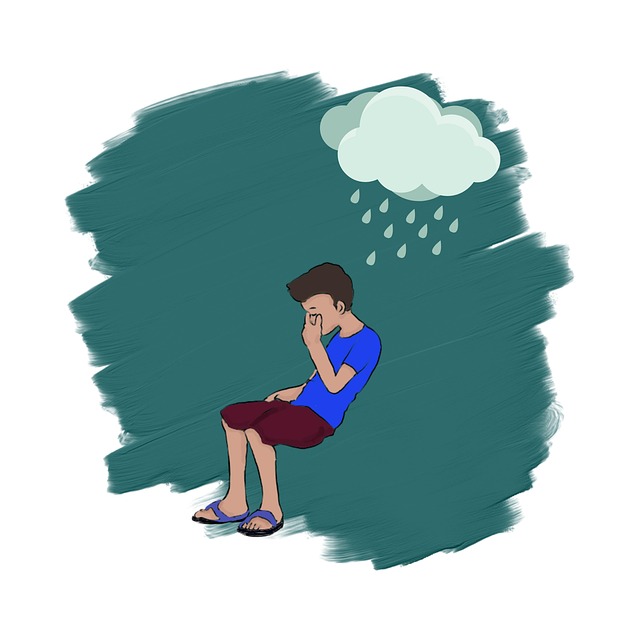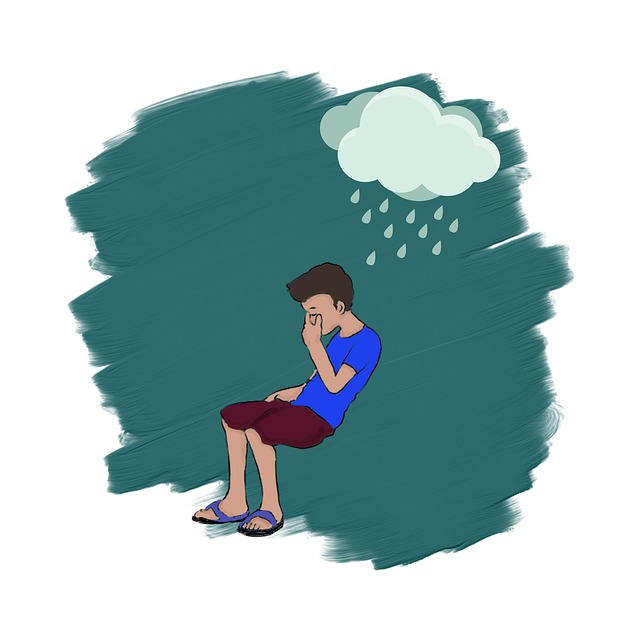Burnout among healthcare providers in Louisville is a growing concern, impacting both provider well-being and patient care quality. To address this crisis, Louisville Gambling Therapy offers comprehensive burnout prevention strategies, including mental healthcare cultural sensitivity, self-esteem improvement, and emotional regulation techniques. By fostering a supportive environment, regular team meetings, and open communication, therapists feel valued and empowered, aiming to prevent burnout, enhance work-life balance, and ensure long-term quality care. Early identification of risks through routine mental health assessments is key, enabling timely interventions like Louisville Gambling Therapy.
In the demanding landscape of healthcare, burnout among providers is a pressing issue, particularly in cities like Louisville. This article explores effective strategies to combat burnout, focusing on Louisville Gambling Therapy’s innovative approaches. We delve into understanding the root causes and impacts, highlighting the importance of creating supportive environments. Additionally, we present tools for long-term resilience, offering valuable insights tailored to healthcare professionals seeking to thrive in their careers at Louisville Gambling Therapy and beyond.
- Understanding Burnout: Causes and Effects on Healthcare Providers in Louisville
- Creating a Supportive Environment: Strategies for Prevention at Louisville Gambling Therapy
- Sustaining Long-term Resilience: Tools and Practices for Healthcare Professionals
Understanding Burnout: Causes and Effects on Healthcare Providers in Louisville

Burnout among healthcare providers is a growing concern, particularly in Louisville where high demand and limited resources can exacerbate existing challenges. Recognizing burnout is crucial as it stems from prolonged exposure to stressful situations, leading to emotional exhaustion, depersonalization, and reduced personal accomplishment. In Louisville’s dynamic healthcare landscape, medical professionals often juggle long hours, heavy caseloads, and complex patient needs, all while maintaining high standards of care.
The effects of burnout are far-reaching, impacting both the well-being of providers and the quality of patient care. Studies have linked burnout to increased rates of depression, anxiety, and even substance abuse among healthcare workers. This can lead to decreased job satisfaction, higher turnover rates, and ultimately, a decline in the overall mental health of Louisville’s community. Addressing these issues requires a multifaceted approach that includes promoting cultural sensitivity in mental healthcare practice, encouraging self-esteem improvement, and fostering emotional regulation techniques to help providers cope with stress effectively.
Creating a Supportive Environment: Strategies for Prevention at Louisville Gambling Therapy

At Louisville Gambling Therapy, we understand that burnout prevention strategies are vital for healthcare providers to maintain a healthy work-life balance and ensure they can continue to offer quality care. Creating a supportive environment is a key component in our approach to combating burnout among our therapists. This involves fostering an atmosphere where professionals feel valued, respected, and empowered. By implementing regular team meetings, we encourage open communication, peer support, and collaborative problem-solving, which strengthens the collective effort and reduces individual workloads.
Additionally, Louisville Gambling Therapy promotes coping skills development through specialized training programs and workshops. We emphasize positive thinking and resilience-building techniques as part of our burnout prevention strategies for healthcare providers. These initiatives help therapists manage stress effectively, maintain motivation, and cultivate a sense of purpose, all of which contribute to preventing burnout and enhancing overall well-being in the long term.
Sustaining Long-term Resilience: Tools and Practices for Healthcare Professionals

In the ongoing pursuit of excellence, healthcare professionals must cultivate long-term resilience to combat burnout and maintain optimal patient care. Building mental fortitude involves adopting a multifaceted approach that seamlessly integrates self-care practices with professional development strategies. For instance, engaging in regular Mental Wellness Podcast Series Production can offer invaluable insights into coping mechanisms and recovery techniques, fostering a sense of community among peers.
Additionally, cultivating cultural sensitivity in mental healthcare practice enhances patient-provider relationships and improves outcomes. By acknowledging the impact of diverse backgrounds and incorporating tailored interventions, healthcare providers can create safer spaces for vulnerable populations. Furthermore, regular risk assessments for mental health professionals are essential tools to identify early warning signs of burnout or distress, enabling timely intervention through Louisville Gambling Therapy or other specialized support services.
In conclusion, addressing healthcare provider burnout is paramount, especially in challenging settings like Louisville. Strategies such as creating supportive environments at institutions like Louisville Gambling Therapy and fostering long-term resilience through specialized tools and practices are proven effective. By implementing these measures, healthcare professionals can mitigate the risks of burnout, enhancing not only their well-being but also the quality of care they provide to patients.














